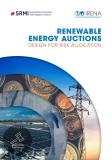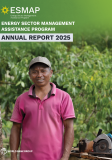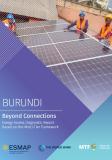Publications
Authors: Gevorg Sargsyan, Mikul Bhatia, Sudeshna Ghosh Banerjee, Krishnan Raghunathan, and Ruchi Soni
ISBN 978-0-8213-8780-1
India has 150 GW of renewable energy potential, about half in the form of small hydropower, biomass, and wind and half in solar, cogeneration, and waste-to-energy. Developing renewable energy can help India increase its energy security, reduce the adverse impacts on the local environment, lower its carbon intensity, contribute to more balanced regional development, and realize its aspirations for leadership in high-technology industries.
This study assesses the existing barriers for tapping renewable energy and delves deeper into the economic feasibility of renewable energy development in India, and analyses what needs to be done to realize the potential.



